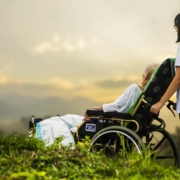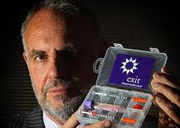a palliative care doctor’s response to the Leadbeater Bill
 November 29, 2024, is a day that could be pivotal in our nation’s history. No turning back. However, I believe it won’t be, not if we unite.
November 29, 2024, is a day that could be pivotal in our nation’s history. No turning back. However, I believe it won’t be, not if we unite.
A few weeks ago, the story of David and Goliath was preached in my church. Never has a sermon spoken to me more clearly. As my husband gripped my hand tightly, whispering that he was praying for me, knowing that ours was a battle against giants, I knew God’s voice in this battle.
The last few weeks have been hectic in the fight against assisted suicide. Why so hectic? The Bill was only published less than three weeks before the second reading and vote in parliament. MPs are expected to vote on this private member’s bill, fundamentally changing the way we view life, death and dying in the UK, with only three weeks to discuss and debate all its implications. A Bill that hasn’t gone through hours of expert scrutiny and that has been put together in a rush and behind closed doors. A Bill that involves legalising killing people. We’d never expect such a swift and under-debated process for a return of capital punishment, so how could it be acceptable here? Kim Leadbeater MP would say it was the ‘safeguards’ that made it OK.
Pausing here, though, I need to be clear. Never do I think it was within God’s plan for us to kill our fellow humans. Our imaginative, loving, trinitarian God would not have us killing people as a compassionate way to end their suffering. Our role as Christians, as humans, is not to ‘compassionately’ judge someone’s life as one we should end. It is to travel that journey alongside them, suffering with them, and showing them love.
I assure you that once killing someone becomes an option, it changes both the collective psyche (well, life isn’t that important) and dampens our imagination (I’ve got no ideas to deal with suffering except for an ‘assisted death’). Think about seatbelts. Decades after the law changed, people who once travelled happily in a car without belts wouldn’t dream of doing so today.
There is nothing ‘safe’ about this bill. When the state can end your life, mistakes will be made. Maybe it’ll be the enthusiastic doctor respecting autonomy when a patient has made the request. The patient might not have had access to good palliative care, they may be lonely, or the social support on offer is inadequate. But they made the request, and that must be respected.
Or maybe it will be the patient whose family is in desperate need of their inheritance. A family struggling to cope with their care, and the patient knows they are a ‘burden’. They make the request, and they have the ‘capacity’ to make the request, but it would be to end someone’s life because they’re a burden or perceive themselves to be. This wouldn’t just be a mistake; it would be a travesty.
As fellow Christians, you need little convincing of the God-given value of human life and the clear moral law this law threatens to cross. However, these arguments alone may make little ground in the current public square. But is it just Christians who are against assisted suicide? No, poll after poll of palliative medicine doctors demonstrates that they, the people who devote their lives to working in the valley of the shadow of death, think assisted suicide is a bad idea. In a 2022 Scottish survey, 75 per cent would not be willing to participate in any part of the assisted dying process, and 98 per cent stated that assisted dying should not be part of mainstream healthcare.
In hospices, people come to us in agony, wishing to die, terrified. They breathe a sigh of relief as they arrive in our building; they feel safe and cared for. They know there are no more tests or night-time-waking, but there is symptom-relieving medication and, more importantly, a nurse’s listening ear.
But only five per cent of deaths occur in hospices; over 40 per cent are happening in the underfunded and overstretched acute hospital across town. It’s here, where dying often isn’t recognised or responded to, where teams are trained to save and extend lives, where you’re the ‘breast cancer in bed seven’ because there isn’t time to learn your name, let alone your hopes or fears. It’s here people are suffering, not through lack of trying on my hospital colleagues’ part, but because our system is not set up for dying well.
I implore you to write to your MP using language they’ll relate to. Every single letter on this topic makes a difference. Fight for palliative care. Would you stand for care at the beginning of life being charity funded, to be available for so few? A postcode lottery on whether you have a maternity unit nearby? Of course not! If we value people and their suffering, then help fight for palliative care and not to end the lives of the terminally ill quickly and cheaply.
Brothers and sisters, we are the David in this fight. Groups campaigning for law change, such as Dignity in Dying, are big and powerful. But we have God on our side. Our faith gives us the courage to know this fight is bigger than us. Matthew 5:11-12:
‘Blessed are you when people insult you, persecute you and falsely say all kinds of evil against you because of me. Rejoice and be glad, because great is your reward in heaven, for in the same way they persecuted the prophets who were before you.’
Dr Sarah Foot, Palliative Medicine Registrar











Leave a Reply
Want to join the discussion?Feel free to contribute!